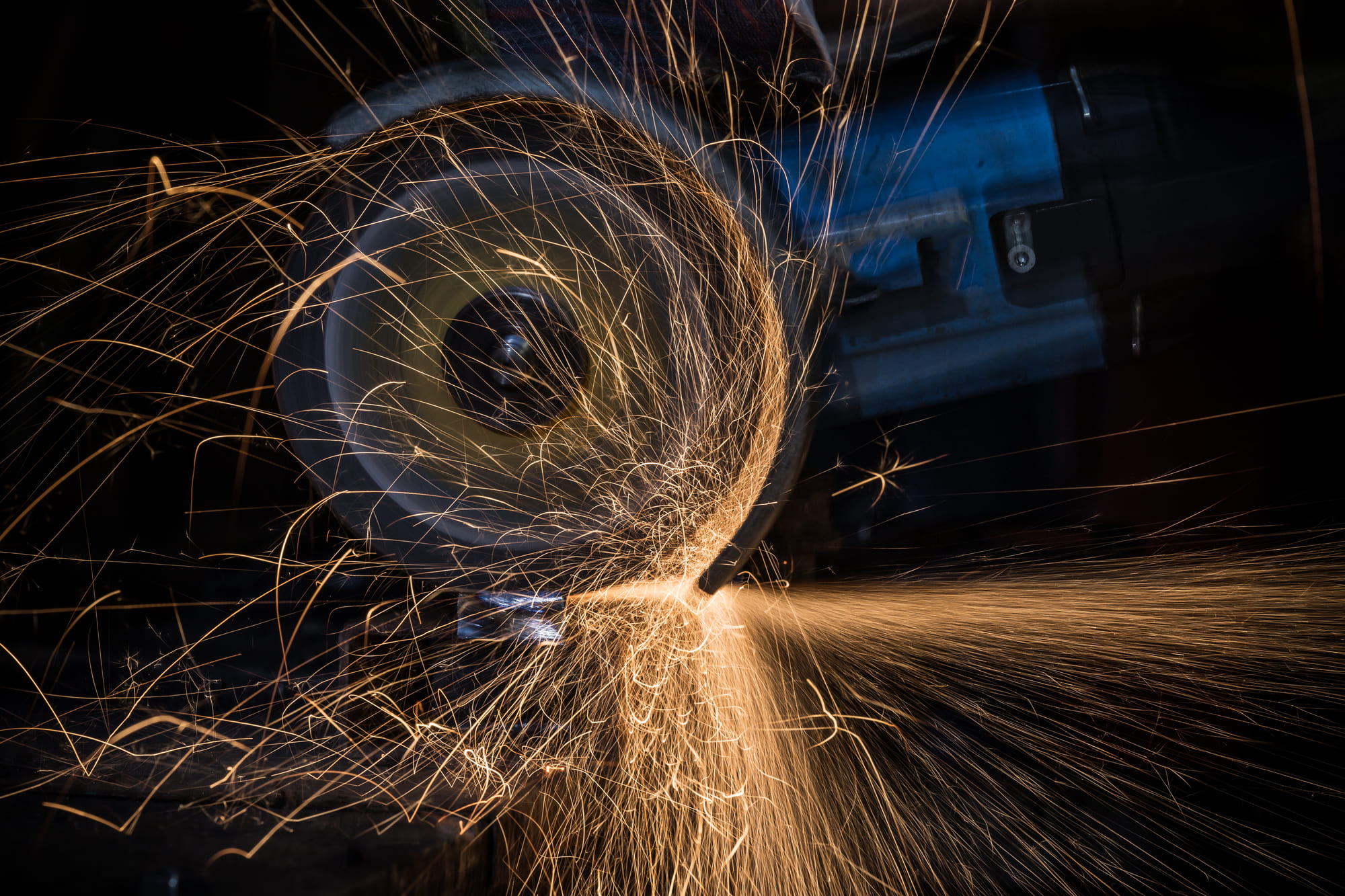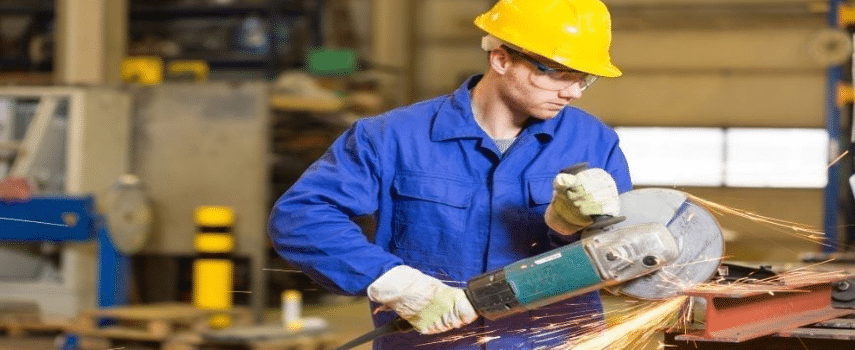A demolition worker’s angle grinder accident occurred when his hand contacted the one he used for cutting cement. Angle grinders, also called side or disc grinders, are a handheld power tool used for cutting, grinding and polishing. To protect from injuries, workers who use angle grinders require personal protective equipment that include eye & hearing protection; leather gloves; natural fiber clothing; apron and respiratory protection as needed. They also need a guard to protect the worker from flying particles.
The Injured Worker’s Lawsuit for His Angle Grinder Accident
In this case, a foreman provided the injured worker an angle grinder that did not have a safety guard. The foreman instructed him to perform his work with this grinder. This foreman gave this instruction despite the grinder lacking a safety guard. The worker sued the construction site’s general contractor for his angle grinder accident under Labor Law § 241(6). The Labor Law allows recovery for a specific violation of a section of New York State’s Industrial Code. Here, the worker alleged a violation of Industrial Code § 23-1.5(c)(3)) as the predicate for his cause of action.
In his complaint, plaintiff contended the defendant violated the specific and concrete requirements of the section. This include how other grinders at the subject construction site had safety guards. However, his foreman told him to use the tile grinder with a missing safety guard,. Also, the general contractor failed to remove the unguarded grinder from the work site. The defendant asked the court to dismiss the claim. The , contending that it did not violate any specific requirements of the Industrial Code. The lower court granted the motion. Plaintiff appealed.
The Appellate Court’s Review of Case
On appeal, the First Department held that the lower court erred in finding that section 23-1.5(c)(3) was too general to support plaintiff’s Labor Law § 241(6) claim. The First Department explained section 23-1.5(c)(3) is explicitly concerned with the equipment’s condition and safeguards as it prohibits using equipment that is not in good repair and safe working condition. The Court found that the provision, although not explicitly, also prohibits the use of unsafe grinders.
Further, the Court interpreted the section’s last sentence which says: “All safety devices, safeguards and equipment in use shall be kept sound and operable, and shall be immediately repaired or restored or immediately removed from the job site if damaged.” The Court held this sentence mandates a distinct standard of conduct. The section creates an affirmative duty instead of a general reiteration of common-law principles. This is precisely the type of concrete specification the law requires. The Court compared this case with a Court of Appeals case, which is the State’s highest court. In that case, a worker was hurt when a hand-held electrically-driven angle grinder kicking back and its wheel striking his face.
In the prior case, the parties disputed the issue whether the certain Industrial Code section was specific to allow recovery. To correct the apparent conflict in the lower courts, the Court of Appeals ruled section language that requires particular conduct upon discovery of a structural defect or unsafe condition is sufficient for claiming damages.
Defendants’ Violation of Industrial Code

Therefore, the First Department held the last sentence provides a basis for liability under Labor Law § 241(6). This is because the Industrial Code section specifically prohibits using equipment that is not in good repair and safe working condition. The First Department included a reservation, however, that angle grinders must ordinarily or originally have safety guards for there to be a violation of the section.
Accordingly, the First Department reversed the lower court’s decision and denied the defendant’s motion for summary judgment. Even when the persons in charge take steps to provide a safe and healthy work environment at a construction site, it is inevitable that accidents will happen. Here at our law firm, we place our clients’ needs above all else in proving how a building owner or contractor’s failure to follow safety tips result in serious injuries or loss of life. When it happens, it is important to speak with a proven Angle Grinder Accident lawyer from The Platta Law Firm.




